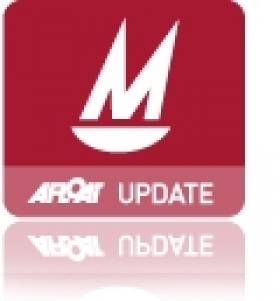Displaying items by tag: albany
Kearney and Odell Add World Mirror Title
After a solid performance in testing conditions Ross Kearney and Max Odell have won the Mirror World Championships in Albany, Australia today. The Royal North of Ireland pair finished the series with two good races on the final day to lead the 61-boat fleet after 15 races sailed.
For the final rounds the winds blew 18-22 with gusts to 28 knots for both races - Kearney had a third in the first race this morning, followed by another third and then a second to clinch the series.
The results is so far provisional and subject to confirmation. Overall score sheet available for download below.
Last August, in Sligo, the Belfast Lough duo picked up the European title.
The prizegiving ceremony is underway in Albany now at 8pm Australian time and there will be more updates later on the win for Ireland.
It is not the first time Royal North of Ireland Yacht Club is celebrating a world championship homecoming tonight because Kearney won it previously in Sweden in 2005 aged 19. He was crewed then by Adam McCullough (11) when they lifted the world title at Östersund.
Today is Ireland's fifth win of the regatta that is open to all but is predominantly contested by youth crews.
The Belfast youth's follow in the footsteps of club mates Chris Clayton and Craig Martin who won the championship in Australia in 2003 previous to that Ireland won the biennial fixture in South Africa in 1999 and also when it was hosted in Howth in 2001.

Ross Kearney and Max Odell survive a luff in 20 plus knots ! Photo: Rob Cruse. More photos from Rob HERE.
Kearney named January Sailor of the Month HERE






























































